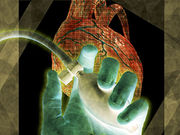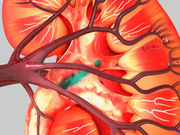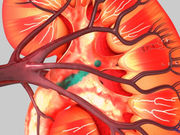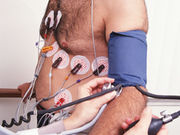AHA: Reducing Blood Pressure Target Could Increase Benefits
Risk of CVD was lowered by 25 percent, while all-cause mortality risk was reduced 27 percent
AHA: Combo Tx Ups Benefits in Intermittent Claudication
Greater improvements in waking distances, quality of life with revascularization plus exercise
AHA: Short, Intense Bouts of Exercise More Beneficial in T2DM
Research suggests brief but harder workouts may provide better blood glucose control
Self-Managing Anticoagulation May Benefit Heart Valve Patients
Study found self-monitoring was linked to a lower risk of death after five years
Three Renal Biomarkers Predict Outcome in Diabetes
AKI, albuminuria, eGFR considered separately or together can predict adverse outcomes in diabetes
ASN: Insufficient Sleep Might Increase Risk of Kidney Disease
Five hours or less a night linked to reduced organ function in women
ASN: PPIs Linked to Higher Risk of Chronic Kidney Disease
But studies weren't designed to prove proton pump inhibitors are responsible for the increase
Exercise Capacity, Heart Rate Response Predict CAD Outcomes
Addition of exercise risk score to established risk model enhances discrimination
ASN: Telenephrology Improves Visit Compliance in CKD
Greater frequency of attending appointments; no difference in the incidence of composite outcomes
AHA: ‘Cash for Lower Cholesterol’ Program May Work
Cooperation is key to program's success, but benefits are modest



















